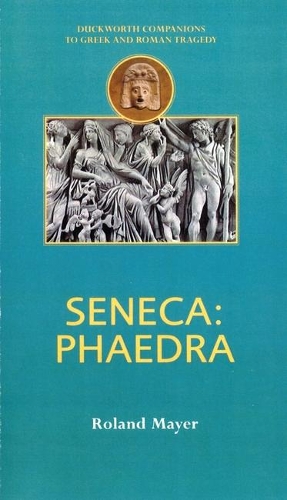
Seneca: Phaedra
(Paperback)
Publishing Details
Seneca: Phaedra
By (Author) Professor Roland Mayer
Bloomsbury Publishing PLC
Bristol Classical Press
24th October 2002
United Kingdom
Classifications
Tertiary Education
Non Fiction
Literary studies: ancient, classical and medieval
872.01
Physical Properties
Paperback
160
Width 135mm, Height 215mm, Spine 11mm
184g
Description
Phaedra is one of Seneca's most successful tragedies. It was the first ancient drama to be performed in the Renaissance, marking an epoch in European theatre. The myth, as reworked by Seneca on the basis of dramas by Euripides, was endowed with fresh power, and his characterisation of Phaedra, especially in her frank avowal of love to her stepson, Hippolytus, fired the imagination of later tragic poets, especially Racine. Roland Mayer introduces the reader to the complex dramatic and literary inheritance which Seneca appropriated and in his turn bequeathed, and he sets out some of the main lines of contemporary interpretation and performance practice.
Reviews
Mayer has produced a good general introduction to the Phaedra and, to some extent, to Senecan tragedy as a whole. It attains most of the goals to which this admirable series of companions aspires and will be found very useful by anyone approaching the play for the first time. -- Bob Cowan, University of Bristol, UK * Bryn Mawr Classical Review *
Author Bio
Roland Mayer is Professor of Classics in the University of London. He has written widely on a number of Roman authors and issues, and in 1990 with Michael Coffey published an edition with commentary of Seneca's Phaedra (Cambridge University Press).
